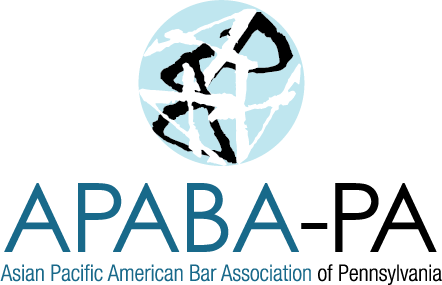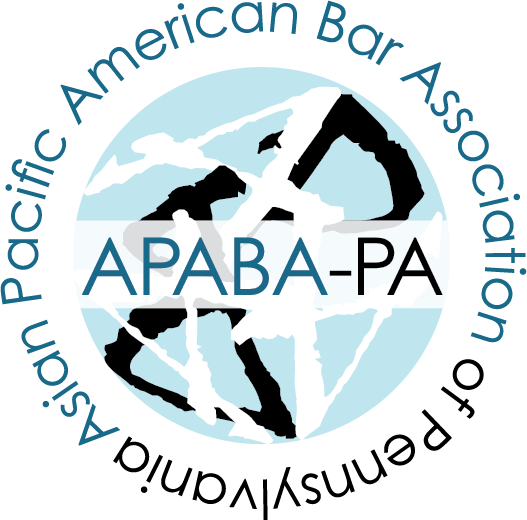APABA-PA Testimony Regarding HB 1506
Asian Pacific American Bar Association (APABA-PA)
Testimony Regarding HB 1506
House State Government Committee
Public Hearing on September 21, 2015
The Asian Pacific American Bar Association of Pennsylvania (APABA-PA) submits this testimony in strong opposition to House Bill 1506, which would designate English as the official language of the Commonwealth of Pennsylvania. Because the proposed legislation would deter economic growth and lacks any compelling justification, we urge that the Committee vote against HB 1506.
Immigrants, including Latinos and Asians, account for large and growing shares of the economy and population in Pennsylvania. According to the Selig Center for Economic Growth at the University of Georgia, Asian purchasing power has totaled $18.5 billion—an increase of 716% since 1990.1 Similarly, the 2014 purchasing power of Pennsylvania’s Latinos totaled $17.9 billion—an increase of 746% since 1990. The Americas Society/Council of the Americas reports that the value added by immigration to the price of the average home was $4,084 in Philadelphia County and $2,438 in Montgomery County. A study by Robert Fairlie of the University of California, Santa Cruz, determined that from 2006 to 2010, Pennsylvania added 38,799 new immigrant business owners who contributed net business income of $2.2 billion to the economy (7.6% of all net business income in the Commonwealth).
The members of these immigrant communities fully recognize the need for English fluency to live and work in the United States. HB 1506, however, will undermine the ability of immigrants to participate in civic life and have the detrimental effect of discouraging immigrants – along with the economic power that they hold – from settling in Pennsylvania. The Commonwealth has enjoyed increased economic activity as a benefit of the influx of immigrants during the last decade.
Rather than embrace the immigrant populations and their manifold contributions, the proposed bill and its supporters would declare in no uncertain terms, that the native languages of others have no place in the public sphere and that immigrants are simply not welcome here. This is wrong.
Throughout history, Pennsylvania has been home for people from a variety of backgrounds, founded on the principle that an inpidual’s forms of expression and conscience are essential assets to a functional democracy. HB 1506 would undermine the lessons of our history and tell the world that Pennsylvania does not want to engage with the global community and is not open for business.
This proposed bill would affect nearly half a million Pennsylvanians, including thousands of Asian Americans, to detrimental effect. According to the United States Census Bureau’s 2009-2013 American Community Survey, 3.9% of Pennsylvanians ages 5 year and over – about 468,000 people – speak English less than “very well,” compared to 8.6% nationally. Of those 468,000 Pennsylvanians, approximately 109,000 speak an Asian or Pacific Island language, and approximately 250,000 are U.S. citizens ages 18 years and over (i.e., eligible voters). Some of the most frequently spoken languages after English include Spanish, Russian, Vietnamese, Tagalog, Korean, and Chinese.
The breadth of HB 1506, which would apply statewide, acts as a blunt instrument to all local government and constrain how they interact with their communities. For example, the Mayor of the City of Philadelphia established the Commission for Asian American Affairs, “recognizing the needs and issues of our increasingly perse Asian American population.” Routinely, the Commission collects information from Asian American communities in an effort to improve city services to those communities. Members of the Commission would find it impossible to communicate with those communities without using Asian languages.
The Asian American community does not have a single written language that can bridge the language gap across Asian ethnicities. The use of English with certain Asian American communities, especially those who are not as fluent in English, will not capture the nuances that Asian languages will convey.
HB 1506 is also constitutionally suspect. For example, if a court in the Commonwealth refuses to provide translation services to a litigant pursuant to HB 1506, the court’s denial would be a violation of due process and impede a person’s right to access the courts. Further, HB 1506 may impede a citizen’s right to vote if the government fails to provide translated ballots to limited English proficient voters.
Lastly, the eight exceptions in the bill virtually swallow the rule and illustrate the unenforceability of this bill. HB 1506 would force local governments to choose between breaking the law, on one hand, and effectively serving its communities and using all tools necessary to be responsive to the health and welfare of its people, having no guarantee that the “health and safety” exception would be applied.
HB 1506 would handcuff local governments from effectively serving discrete communities and prevent them from using all tools necessary to be responsive to the people. As a result, local governments will be forced to ignore the people’s demand for multi-lingual access, or at a minimum, may not respond properly or promptly to people’s needs for multi-lingual access. Law enforcement and district attorney’s offices currently utilize multilingual tools to protect victims, interview witnesses, and solve crimes. This bill might have the result where law enforcement and other officials would have to seek a legal opinion each time they respond to a request for service. By preventing law enforcement from effectively communicating with community members, the safety of many Pennsylvania residents and citizens will be jeopardized.
Furthermore, HB 1506 will inevitably conflict with and be pre-empted by federal law. Title VI of the Civil Rights Act of 1964 and Executive Order 13166 mandate language access for inpiduals of limited English proficiency when those inpiduals encounter not only federal agencies, but any state or local government agency that uses federal funds.
In short, the Commonwealth will see no gains in passing HB 1506. Rather, HB 1506 will deter economic growth, decrease revenue for the Commonwealth, and create needless confusion among state agencies, local governments, and the communities that they serve. This will deter needed investments in Pennsylvania and, frankly, expose taxpayers to costly litigation upon the passage of HB 1506.
Founded in 1984, APABA-PA serves a wide network of Asian Pacific American attorneys in the Commonwealth and is dedicated to the advancement of its members and the Asian American community. APABA-PA’s members consist of attorneys, judges, and law students.
Routinely, APABA-PA speaks out on legal issues that affect the Asian American community in Pennsylvania.
Respectfully,
ASIAN PACIFIC AMERICAN BAR
ASSOCIATION OF PENNSYLVANIA
By:
Su Ming Yeh
President, APABA-PA
1 American Immigration Council, New Americans in Pennsylvania, THE POLITICAL AND ECONOMIC POWER OF IMMIGRANTS, LATINOS, AND ASIANS IN THE KEYSTONE STATE, http://www.immigrationpolicy.org/just-facts/new-americans-pennsylvania (last visited, Sept. 18, 2015)
- On September 21, 2015

